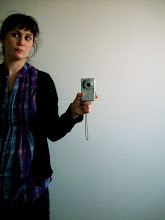Whatever the medium may be, as soon as insanity is placed on the table anything we’ve previously been shown or told is brought into question. How do we know that the side of the story we’ve been is the truth and not just the creativity of someone quite out of their mind? In the context of our story, Sybil, the narrator has been known to be very spirited and speak her mind on such matters as freedom and liberty. This is quite revolutionary for a woman of this time period, and for being so outspoken, Sybil makes herself out to be a target. Therefore when someone as spirited as her is locked away, it makes us want to fight for her more than if she was more docile and submissive. It also leads us to question what is going on and if what we’re told is going on is the truth.
There was only one point in the story where I questioned Sybil’s credibility as our narrator. When she looks upon the body of her mother and thinks that she’s seeing herself for the likeliness is stunning, she questions her own sanity and whether she is merely a spirit and that is her body or is she is still in fact alive, “I had plotted death, and with the waywardness of a shattered mind, I recalled legends of spirits returning to behold the bodies they had left” (Alcott 243). This sends the reader into his or her own tunnel of confusion. What exactly is going on? Is she really dead and that’s her spirit? At what point did she finally give in to insanity?
Every domestic novel we’re read thus far seems to glorify the mother/daughter relationship, however not one single main character has a stable relationship with their mother. Capitola is taken away from her mother at birth, Gerty’s mother died shortly after she was born, and even Ellen is left alone after her mother is sent away for her health and never returns. The idea has been reinforced in many didactic lessons that a young girl needs a powerful female role model (her mother) in order to lead a ‘good’ life. In the case of Sybil and her mother, the mother is thought to be insane and taken to an insane asylum. If Sybil was left to grow up around her mother, it probably wouldn’t have been very healthy environment for a young child, however without the strong female example, Sybil relies on her powers of manipulation to get what she wants and desires and gets sent to the asylum herself. In this case, it seems to me that the emphasis of the mother/daughter relationship is somewhat lessened. Yes, Sybil needs a mother figure and is at a loss without one, however if she was to have her own mother, wouldn't she still be at a loss?

I like your view on the mother/daughter relationship. I honestly think she was better off without her mother growing up because then she would not have been the strong woman we see. She may have turned out like Ellen, which would have totally been the opposite side of the spectrum. Nice blog!
ReplyDeleteThat is very interesting to note that yet the mothers in the other stories have been physically present their relationships are still not considered stable. They are glorified, yet not ever really a perfect picture for readers. Your thought is really interesting to think on and realize how it impacts the soceital views on families at the time.
ReplyDeleteI think you captured the relationship of the mother and daughter in A Whisper in the Dark. Like Courtney said, I think in the end Sybil was better off not having her mother there to help her because some girls tended to be annoying and too high strung, such as Ellen in the Wide Wide World. Great post!
ReplyDeleteOne thing that I really liked about your post this weeks was the way you approached insanity. I, like you, believe that Sybil was perfectly normal until she was put into the asylum. But, you looked at it from the mind of 19th century person--was she sane in her time period? Her revolutionary behavior certainly isn't normal... maybe to them she really was out of her mind.
ReplyDelete